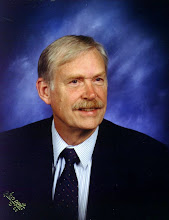
It must have been four years ago when I got an email from a guy named Vic. He was researching a story about the lumber industry in the Midwest to the Far West. In doing so he came across one of my family lines and then my name as a submitter of the information.
Vic introduced himself and then began asking questions. It was then that I had to ask myself a question: was I going to write a book about these cousins or not? If not, would I object to letting someone else write their story?
So I didn’t respond to Vic right away. I thought it over for several weeks (while I worked on another book) and then decided to let Vic use my information.
At first, I sent Vic what only he asked for. Then I asked if he knew some strange stories of the deaths of several of my people. He didn’t, so I sent the details and photographs. This led to other questions and materials flying back and forth across the Internet and soon I was learning things about my family. Then I began to look forward to Vic’s emails. I dug deeper into my own piles of papers for him. And then came the announcement: the book was finished. I would be getting a copy in a week or so.
For me, it all began with the murder of my great-grandfather in 1874. I wrote about him and the cowardly backshooting by the KKK in those ugly days after the Civil War. I followed the family afterwards because witnesses against the Klan did not live long and I wanted to see what had happened to them. Three brothers disappeared completely. One had been killed and the other two may have fled to what is now Panama.
A fourth brother, Tom Walker, testified and then fled out west. He had been a shopkeeper at home but out west he started stores and banks to serve settlers in Kansas and Missouri. He died in 1931 as a very wealthy man. His family line ran out in 1967 when his only grandson, a gay man, died young of cancer. It was Tom’s family’s epic tale that I wanted to write about.
It seems Tom Walker had a daughter who married a wealthy young man named Bill Carlisle. The Carlisle family was very big nationally in the lumber industry. The new family soon produced two sons. Tommy was killed by a drunk driver in 1937. The driver died in a mysterious fire soon after. Money from both sides of the family ended up in the hands of Tom Walker’s other grandson, Bill Carlisle.
Bill was very interested in the Metropolitan Opera in New York City, and not the lumber industry. He and his partner would go to New York and would throw parties for the artsy folks. I have a letter at the time of his death that said, “Bill has died. I notified the Roosevelts, Andre Kostelanitz, Rosa Ponselle . . . (and other luminaries of the social set in the 1960’s).” Bill’s partner lives within thirty miles of me at Laguna Beach as I write this, but is very reclusive and will not talk to me.
So Vic wrote a very interesting book about the lumber industry and the people who founded it using most of his own enormous research, but he flavored his interesting work with materials I had sent him. After reading the book, I found I was glad that I had done my family history, glad that it had been useful to someone else, and glad that I had placed their names on the Internet.
Vic is a good, interesting writer. He has the knack of making a well-documented history seem like a novel. Ken Burns, Dayton Duncan and others whose historical works appeared on PBS have that same ability. They are inventing a new genre which fits genealogists needs very nicely.
The name of the book is Onalaska and the author’s full name is Victor J. Kucera. I recommend it as an interesting book by itself, but also as an example of how you can organize and present that genealogy you have in the back of your head. The book has 340 pages plus an appendix, end notes, time line and an index. It will be available in early 2012.
Onalaska is a book I did not write. But I wish I had. I would say more about it but I just discovered a letter my grandmother wrote to Tommy’s mother after the car crash in 1937. Maybe I can get it to Vic so he can include it in the final edition.
One more thing: you just don’t know when the material you collected is going to be useful to you or to someone else. That is why it is worth the effort to be the “expert” on your family and to have the information handy. And it is useful to let someone on the Internet know that you have it.

